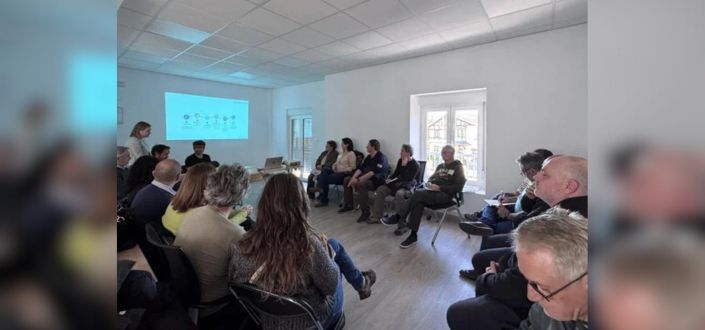Agricultural engineer Pablo Oria, lecturer at the Higher Polytechnic School of the Universidad Europea del Atlantico (European University of the Atlantic, UNEATLANTICO), participated in the UNESCO Costa Quebrada Geopark intersectoral round table, representing the local producers’ sector.
The geopark management team worked to organise several sectoral round tables, whose meetings are an exercise in shared responsibility and recognition of the diversity of views that exist in the territory.
These round tables seek to gather, in a participatory manner, the views, concerns, proposals and warnings of local actors to be integrated into a strategic document that will be submitted to the Geopark Governance Committee.
This committee is made up of representatives from the local councils and the Cantabrian Government’s departments of the Environment, Livestock, Education and Culture. This is a way of consolidating the participatory model that has characterised Costa Quebrada since its inception in 2003.
The initiative has mobilised more than 90 people representing strategic sectors: environmental conservation, local production, tourism, citizen participation and livestock farming. A total of five sectoral round tables and an intersectoral conference were held, generating more than 240 contributions and 200 hours of work.
The UNEATLANTICO lecturer emphasises that ‘being part of the intersectoral round table in defence of local producers opens a window to understanding the needs of the sector in the Costa Quebrada UNESCO Geopark, solving its problems, promoting it and establishing synergies between UNEATLANTICO and the sector’.
The intersectoral conference served to share the conclusions of each round table and facilitated the identification of latent tensions as well as numerous points of agreement that point towards a shared vision of the territory. The proposals gathered covered key issues such as environmental conservation, responsible tourism, citizen participation, private property, livestock farming and, in particular, local production, represented by Pablo Oria and the rest of the sectoral round table.
Finally, it should be noted that the Costa Quebrada Geopark is at a key moment in its consolidation. Its recognition by UNESCO gives it international visibility, but also implies a greater degree of commitment, coherence and planning. Oria’s participation in the round table represents his commitment and that of the European University of the Atlantic to solving the challenges facing the sector.


